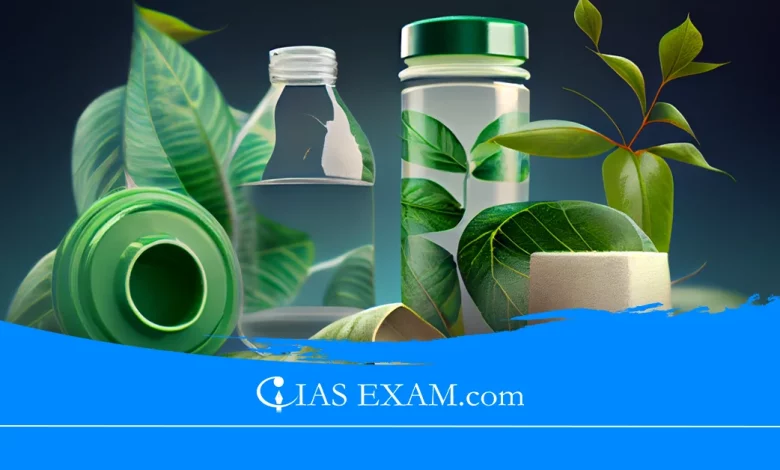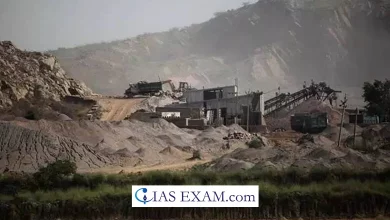Daily Current Affairs for UPSC
Environment Ministry Tightens Bioplastics Regulations
Syllabus: Ecology and Environment, [GS Paper - 3]

Context
- Recently, the Ministry of the Environment made it harder on regulations: To identify disposable plastic products as “biodegradable” now requires detailed qualifications. As for makers such as these, that produce disposable products from plastic resins there are no micro-glass or any plastics that fail to degrade.
About Bioplastic
- Bioplastics as a form of unnatural plastic, have come from renewable sources at last. For example someone made with the same foundation cornstarch or sweet sorghum raise, and it’s different from ‘green plastics’ which are made out crude oil; bioplastics are created to reduce our dependence on fossil fuels and ecological harm done by man made products like packaging materials at every stage of their life cycle.
- Still, if produced properly biodegradable (either in nature or by man); it’s not our question about this matter. Organised trashing is currently using bioplastics in order to manufacture more sustainable products and reduce the amount of plastic rubbish.
About the Recent Rules & its impact on Bioplastic
- After the recent revisions, biodegradable plastics now are made from substances that can decompose by natural biological processes in a particular environmental setting such as soil and landfill.
- Materials made from such materials must neither produce microplastics nor leave them as residues after their disposal.
- To establish the absence of microplastics, it is not specified in their rule to discuss which chemical tests can be used.
- It is also specified that up to what level the microplastic must be reduced in sample order.
- The Central Pollution Control Board (CPCB) has refused to provide makers of disposable plastic ware with a ‘provisional certificate’ to licence their products as biodegradable.
- The new amendments to India’s Plastic Waste Management (Amendment) Rules, 2024 define biodegradable plastics as materials that can degrade in specific environments like soil or landfills and do not leave behind any microplastics.
Pros of Bioplastic
- In particular, when the feedstock is biomass, bioplastics may have a lower carbon footprint than non-replaceable fuel plastics.
- Bioplastics are designed to disintegrate faster than common plastics and can be composted under the right conditions.
- Bioplastics are often free of harmful chemicals such as Bisphenol A that are usually found in conventional plastics.
- Large corporations are supporting general enlightenment making the forays made into bioplastic research and development look more akin to public-interest work.
- Waste products like food waste or other discardable material can make a manufacturer’s environmental record better by using resources that would otherwise be thrown away.
Cons of Bioplastic
- Bioplastics have performance problems in some cases: the physical properties of a few can not match the characteristic standards of petroleum-based plastic they stand for.
- Bioplastics are not completely made out of renewable materials. Some of them are partly renewable.
- The land on which bioplastics are grown might have Instead led to food production or deforestation.
- One way to minimise the possibility of accidentally stuffing traditional and bioplastics together when recycling is to separately recycle some bioplastics.
- There are, however, certain uses in which even these so-called sustainable bioplastics may have an extremely short lifespan.
Conclusion
- In conclusion, though with many ecological pros themselves, bioplastics are a possible substitute for standard ones; however, it is essential to recognise and address their existing bottlenecks and limits. A new specialisation among bioplastics is yet gaining ground, and if concerted efforts are made in how they are produced that slowly some of these drawbacks will naturally decrease.
Source:The Hindu
UPSC Mains Practice Question
Q.“Analyse the implications of the increased use of bioplastics in India from an environmental and economic perspective, considering the recent amendments to the Plastic Waste Management Rules.” [250 Words]





.png)



